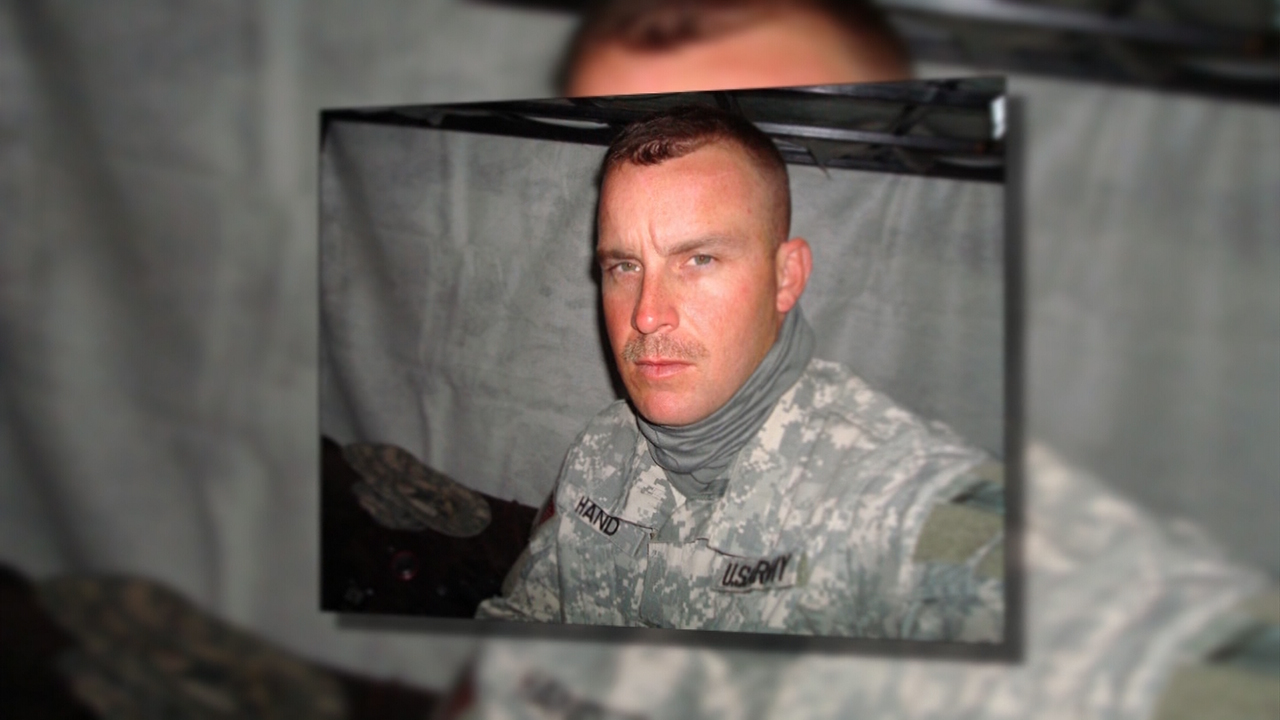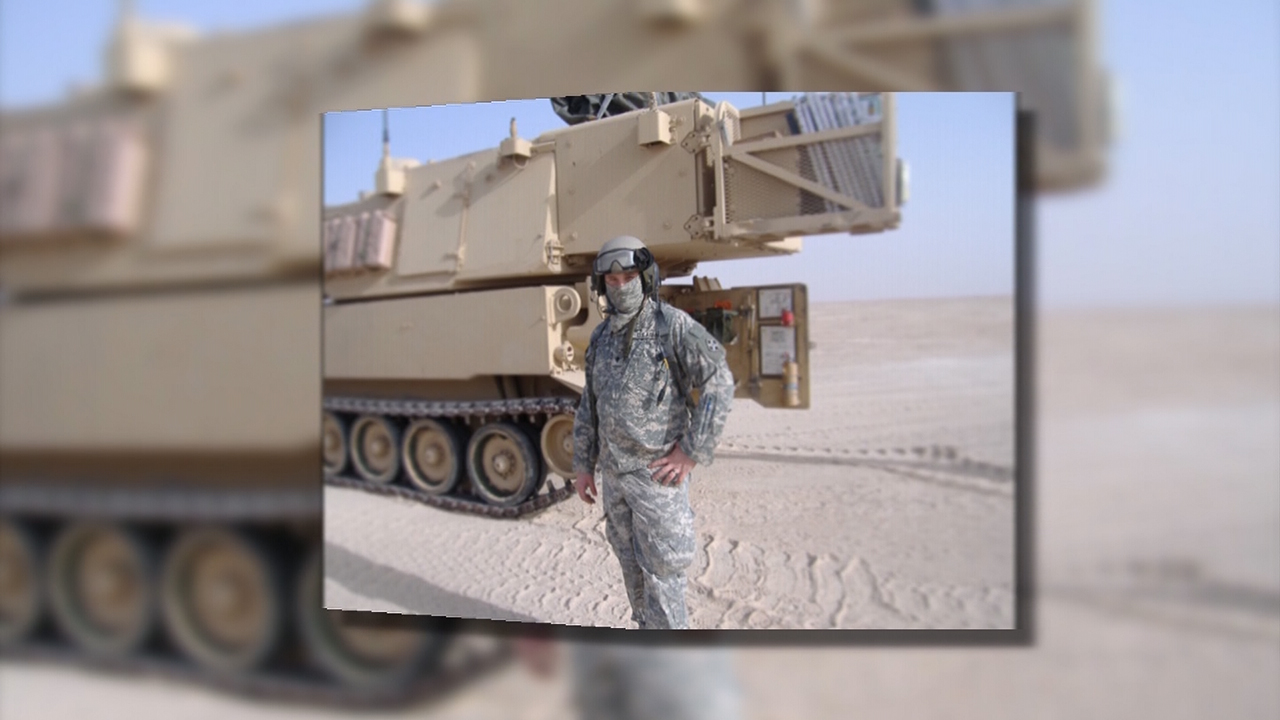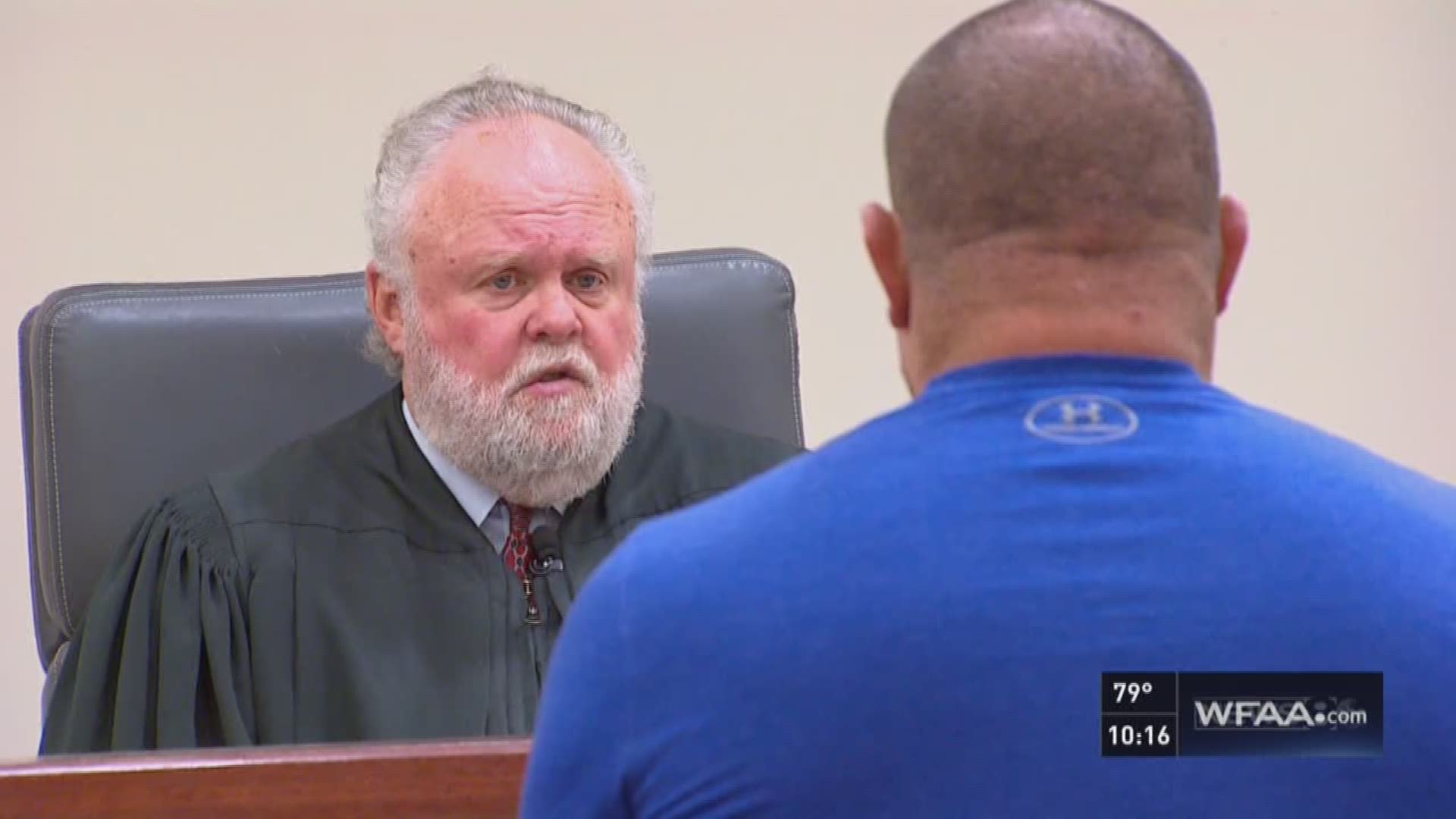CARRY THE LOAD
FORT WORTH — Twice a month in Tarrant County Criminal Court 9, defendants rise and recite the Pledge of Allegiance.
And they mean it. They've proved it.
“You were in the Marines and the Army?” Judge Brent Carr asked one of them. "How did that happen?”
Brandon Hand, 40, explained. He joined the Marines after high school, and the National Guard after 9/11.
At the Tarrant County Veterans Diversion Court, they're all veterans. Almost all have been sent to war more than once, saw combat, came home, and got into trouble. Mainly drunk driving.
“I see here you’ve already completed DWI education,” Judge Carr told Hand.

“Yes, sir,” he replied.
Hand says his drinking picked up when he came home from Iraq.
“Mr. Johnson,” the judge called out, scanning the courtroom.
About 15 young men occupy the benches. Mr. Johnson is Taylor Johnson, who served two tours in Iraq. Now, he has one DWI at home.
Carr looked him over.
MORE: Carry the Load
“I don’t have any reason to believe you’re not all in the game now, but I need 100 percent," he told Johnson. "I need 100 percent commitment."
Carr, a former Marine officer with two sons in the Army, he talks and cares for the vets who enter his court.
“It looks like you’re making great progress,” he tells one young man. “Keep up the good work.”
Carr applauds, and the courtroom erupts in applause as well. This happens repeatedly. In the court, defendants cheer each other for completing counseling, holding jobs, getting off drugs, staying sober. If they do all that they graduate. And in most cases, their criminal history disappears. It’s a powerful incentive for veterans who’ve already shown they can be motivated.
“You feel like a team when you’re in there,” Hand said. “We’ve all served.”
He helped Arlington Martin High School win a state baseball championship back in the 90s, before 9/11, Iraq, and PTSD.
He says his base was rocketed or mortared 80 times during a 10-month deployment.

Johnson tried to befriend an Iraqi child while out on a foot patrol. The child stabbed him in the ribs. Both vets are grateful for veterans court.
“If you want to see a psychologist, they cover everything,” Johnson said.
The court connects vets with everything from housing to in-patient drug and alcohol treatment. Each person gets a mentor.
Retired Air Force JAG Cheryl von Ehrenkrook is one of them.
“I am basically a wing woman or a battle buddy,” she explained.
Courtney Young runs the program for Judge Carr.
“To be admitted to the program you have to have a mental illness that was a result of your combat service or military service,” he said.
Young says 86 percent of vets who come into the court graduate.
“But the number to look at is recidivism,” he said. "How many vets were re-arrested after graduating. Right now, we’re at six percent recidivism.”
That’s after six years of the program, and just under 200 participants. Judge Carr says he knows of no other court program with that kind of success rate. He sees it as a way to pay them back.
They’ve broken the law and owe a debt to society. But, in this court, it’s never forgotten that society owes them a debt too.

